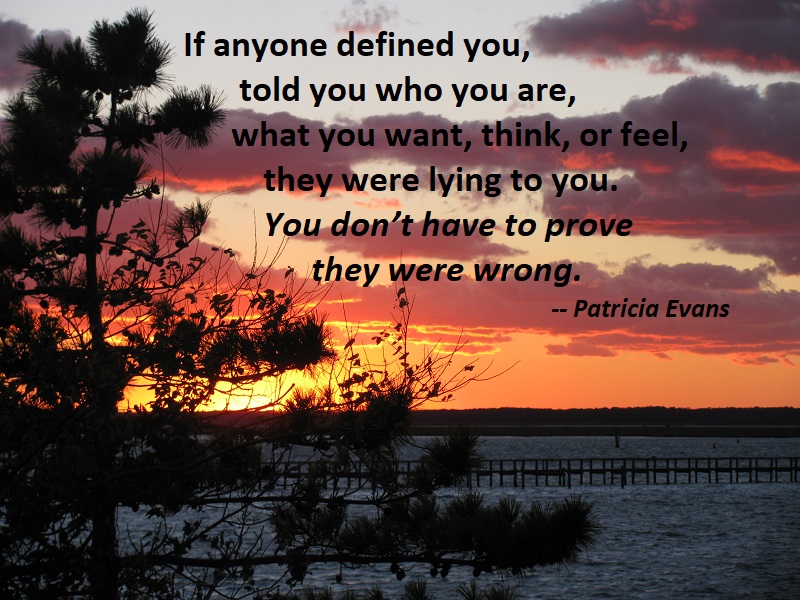Wiser and Stronger Each Day
As you choose your path and how you will use your time in the present, you are actively creating an increasingly more satisfying future. You are also dissolving the imprint and impact of any verbal abuse you’ve heard. Any negative definition of who you are by anyone in any time or place has no meaning or reality. While you may have been the target, like a drive-by shooting, the comments were not your fault.
You are infinitely more deserving of love and care than any negative comments would say. They are simply little synapses that flew out of someone’s mind. They are less meaningful than the chirping of a bird. Knowing this you are wiser and stronger each day. Knowing this you can choose to do what is best and right for your highest self this week and in the weeks to come.
— Patricia Evans, Victory Over Verbal Abuse, p. 176
